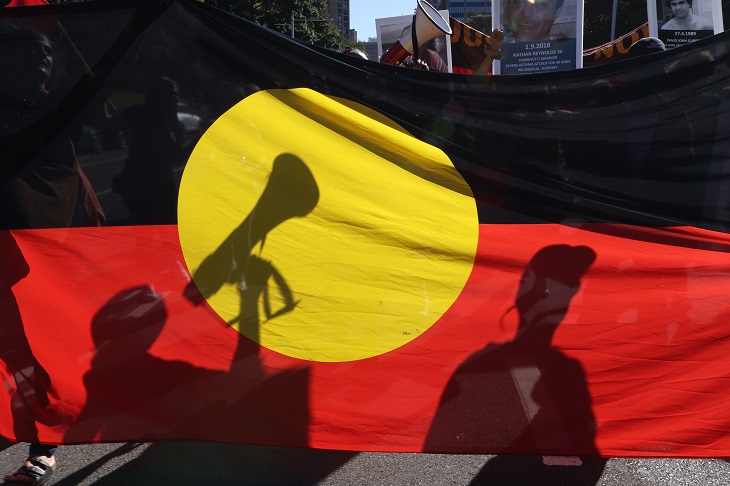Many in favour of the Voice fail to understand the purpose of a nation’s Constitution. Before voting, Australians need a civics lesson in Constitutional first principles.
The ‘yes’ Campaign is built on the premise that a nation’s Constitution is the equivalent of an ‘About Us’ page on a corporate website. An ‘About Us’ page typically provides a helpful overview of what the business does, when it was founded, its size, geography, top executives etc plus a feel-good mission statement.
If the Australian Constitution is merely a national ‘About Us’ page for others to understand who we are then, yes, recognition of Aboriginal occupation pre-1788 would be included. It is, however, a Constitutionally ignorant understanding.
The purpose of a Constitution is to strictly set out the limits of government power in a free society. It assumes firstly that individuals are free and secondly that the exercise of government power will inherently an impingement on at least some individual freedoms. A Constitution defines what government can do … and if a government program tries to do something not mentioned in the Constitution, then the government program is invalid.
Some of mankind’s earliest written documents are legal codes. The Books of Moses contain the most extensive version but we have sections of other Bronze Age legal codes. These documents primarily contain laws on how civilians should engage with other civilians and what the government will do if a law is transgressed. It was not until the Greeks and Romans in the middle of the first millennium BC that we see rules around limiting and dispersing government power.
There are around 200 nations on Earth today. Almost all have a written Constitution and many echo the finest version ever penned – the US Constitution. America inspired Europe’s then most significant nation, France, to do something similar the following decade. Both the American and the French Revolutions and Constitutions inspired people across most of Europe and Latin America in the 19th Century.
The Revolutions of 1848 rocked the north, south, east, and west of Europe. The two significant nations that the turmoil of 1848 skipped were the United Kingdom (which had been limiting state power for almost two centuries) and stridently anti-reform, Imperial Russia. The upshot of 1848 was that written constitutions limiting state power became the norm across Europe. It’s a similar story in Latin America.
Eureka Stockade in 1854 was simply the delayed Australian version of these 1848 uprisings – constitutions and democratic elections to legislatures became the norm across Europe post-1848 and across the Australian colonies post-1854.
In the 1890s statesmen from across the Australian colonies debated what an independent and federated nation might look like. The then spelt Australian Labour Party was in that decade a rising force but still very much a fringe player. The drafting of the Constitution of Australia formally commenced in 1891 and concluded in 1899. It was a dramatic period with many twists between the Protectionist and the Free Trade parties. The ALP played no role in drafting of the Australian Constitution.
In 1891 the colonial Parliaments appointed delegates to a Constitutional convention in Melbourne and then Sydney – none were members of the ALP. In 1897 the people of the colonies elected delegates to a Constitutional convention – the ALP’s only contribution was to snipe on the sidelines and not run candidates. When the draft Constitution was put to the people, the ALP campaigned against ratification. Labor figures had different reasons to oppose, but within the DNA of the ALP is an unsettled relationship with our Constitution (it limits the power of the state too much for their liking).
Labor has craved amending our Constitution ever since. In 1910 Andrew Fisher was the first elected Labor Prime Minister and he used his impressive majorities in the House and Senate to put a record 11 referendums. Fisher was an ardent Christian democratic socialist (and in my opinion, our most racist Prime Minister). Fisher wanted the Constitution to give him the power to nationalise industry. All 11 failed (often narrowly) and in our infancy, Australia dodged socialist poison.
Since Fisher there have been 33 more referendums – just eight have won. The ALP has proposed 19 of these 33 and just one has met with approval (in 1946). Both Gough Whitlam and Bob Hawke tried six times each to change our Constitution and together scored a dozen ducks. Between Hawke and Anthony Albanese there were four Labor Prime Ministerships which wisely steered clear of Constitutional amendments (their focus is now imperceptibly but endlessly expanding the state through bureaucracy).
Some who have spent their lives in the political bubble believe the only thing that can lift Aboriginal living standards is politicians and bureaucrats. Initiatives like Kevin Rudd’s apology and the endlessly bloated Aboriginal bureaucracy do little in the real world. As Ronald Reagan wisely noted, ‘Government is not the solution to our problems – government is the problem.’ Voting for the Voice is like finding oneself in a hole and digging deeper. To survive on this hostile continent for 65,000 years the Aboriginals must have been possessed of a powerful can-do spirit. Reducing government bureaucracy will help them rediscover that essential ingredient.
The Hon John Ruddick MLC is a Liberal Democrat in the NSW Legislative Council
Got something to add? Join the discussion and comment below.
Get 10 issues for just $10
Subscribe to The Spectator Australia today for the next 10 magazine issues, plus full online access, for just $10.


























Comments
Don't miss out
Join the conversation with other Spectator Australia readers. Subscribe to leave a comment.
SUBSCRIBEAlready a subscriber? Log in